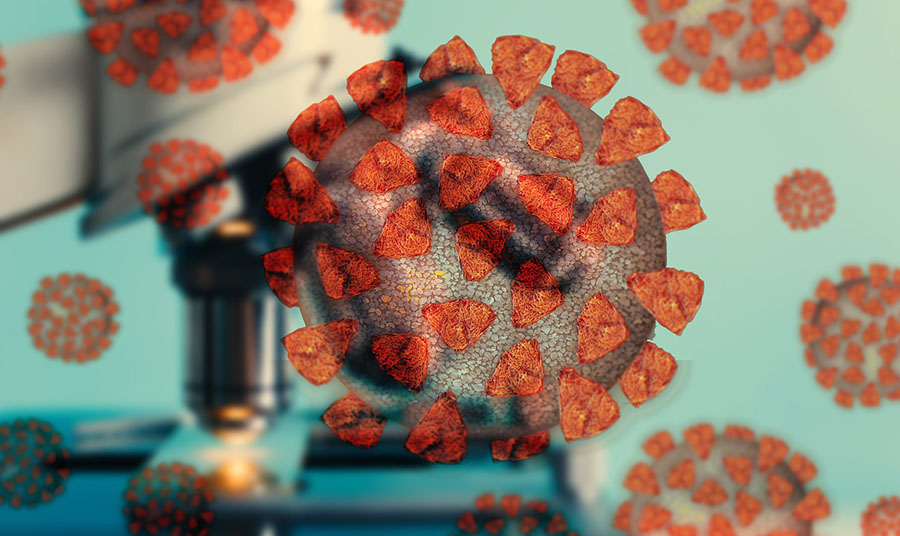King had just joined JMP Securities as managing director and senior biotechnology analyst when I spoke to him on Dec. 27, 2012, for an interview set to appear in The Life Sciences Report. His coverage list had not been formalized at the time, but we nevertheless talked about some truly great ideas that biotech investors need to hear about. It pays, in the truest sense, to know that King has been on everybody's list of top biotech analysts over the past 17 years, and right now he's making the case for newer names that are going to be the blockbusters of the next decade.
Antisense is one of King's favorite technologies right now. "I like to say we're in a ribonucleic acid (RNA) world these days," he says, "And these oligonucleotide (very short strands of modified DNA and RNA) companies are perhaps the antibody companies of two decades ago."
The major names involved in this type of RNA-modifying technology are Alnylam Pharmaceuticals Inc. (ALNY:NASDAQ) and, two companies where significant resources have been invested in research and development over the past 15 years without a lot of major successes, so far. But the technology is still very new compared to the small molecules that have been in use for many thousands of years and the monoclonal antibodies that took medicine by storm over the last 15–20 years. Other companies have emerged in the antisense space, and they appear to be building on the lessons learned from the pioneer companies.
One name King's very bullish on is Galena Biopharma Inc. (GALE:NASDAQ), with its immunizing adjuvant NeuVax (nelipepimut-S or E75) to prevent recurrence of breast cancer in patients expressing levels of human epidermal growth factor receptor 2 (HER2/neu) too low to be eligible for Herceptin (trastuzumab). This low-HER2 group represents about 50% of breast cancer patients. The vaccine is given following surgical resection and/or chemotherapy, which is a period in the life cycle of the disease when patients would otherwise be watched with no further treatment until and if a remission is manifest.
I ask King if the product's efficacy is real. "Oh yes," he says. "One needn't look too hard to find plenty of evidence in the scientific literature that the drug works. Some of the data generated at the MD Anderson Cancer Center are quite intriguing. Now, it's up to Galena to do the registration trial that will be required for the U.S. Food and Drug Administration (FDA) filing. Experts have shown that the drug is active. Now we just have regulatory hurdle to get over, and Galena is doing a very nice job of executing on that." One low-risk, near-term catalyst investors can keep their eyes on is the expected completion of enrollment in the company's pivotal, randomized phase 3 trial in node-positive early-stage breast cancer, which should be accomplished before mid-year and potentially earlier.
Ariad Pharmaceuticals Inc. (ARIA:NASDAQ) recently received approval for Iclusig (ponatinib) for treatment of resistant or intolerant chronic myelogenous leukemia (CML) and for Philadelphia chromosome-positive acute lymphoblastic leukemia (Ph+ ALL) a full three months ahead of the product's Prescription Drug User Fee Act (PDUFA) date. However, the Street was not happy that a black box warning was added by the FDA, and the stock sold. "I only wish the drug had been approved before the American Society of Hematology (ASH) meeting, which was in early December, and not after," King says. "I think the Street freaked out unnecessarily when the FDA put the black box warning on the drug."
King makes it crystal clear that he believes Iclusig's efficacy will simply trump the worries. "Let's face it—look how long Gleevec (imatinib mesylate) has been around, and look at the relative lack of activity. Sprycel (dasatinib) and Tasigna (nilotinib) are better than Gleevec, and they still leave a lot to be desired. I think Iclusig is going to make the older drugs look relatively tame in comparison."
King also views epigenetic inhibitor technology as one of the very new frontiers in medicine. Astex Pharmaceuticals Inc. (ASTX:NSADAQ), formerly known as SuperGen, has an approved DNAMT inhibitor called Dacogen (decitabine), which is very similar to Celgene Corp.'s (CELG:NASDAQ) Vidaza (azacitidine), both of which are used in acute myeloid leukemia (AML) and very successfully in myelodysplastic syndromes (MDS). Dacogen is licensed to Eisai and Johnson & Johnson subsidiary Cilag GmbH International.
"Astex owns more of a residual interest in Dacogen, rather than a real substantial economic interest," King says. "However, I think that's about to change, with recently generated data regarding Astex's phase 2 hypomethylating agent SGI-110, which is being tested in MDS, AML, ovarian and liver cancers."
SGI-110, a second-generation DNAMT inhibitor now in phase 2, was developed by the company internally and is not partnered. "The data so far look very good," says King. "If Astex can get SGI-110 to market, then you have a whole different calculus going on because you then have a heck of a lot longer intellectual property life, and with differentiated activity. In addition, you would some improved dosing convenience. Also, you have a biomarker being developed. There is a lot of good stuff that would go along with SGI-110, and it's not just a reformulated version of decitabine."
To read the entire interview with Michael King, visit The Life Sciences Report.
DISCLOSURE:
George S. Mack personally and/or his family own shares of the following companies mentioned in this interview: Isis Pharmaceuticals
Michael King: I personally and/or members of my immediate household own shares of the following companies mentioned in this interview: None. I personally and/or members of my immediate household am paid by the following companies mentioned in this interview: None. I was not paid by Streetwise Reports for participating in this interview.
From time to time, Streetwise Reports LLC and its directors, officers, employees or members of their families, as well as persons interviewed for articles on the site, may have a long or short position in securities mentioned and may make purchases and/or sales of those securities in the open market or otherwise. Streetwise Reports does not accept stock in exchange for services or render general or specific investment advice and do not endorse or recommend the business, products, services or securities of any industry or company mentioned in this report. Streetwise Reports LLC does not guarantee the accuracy or thoroughness of the information reported.


























































